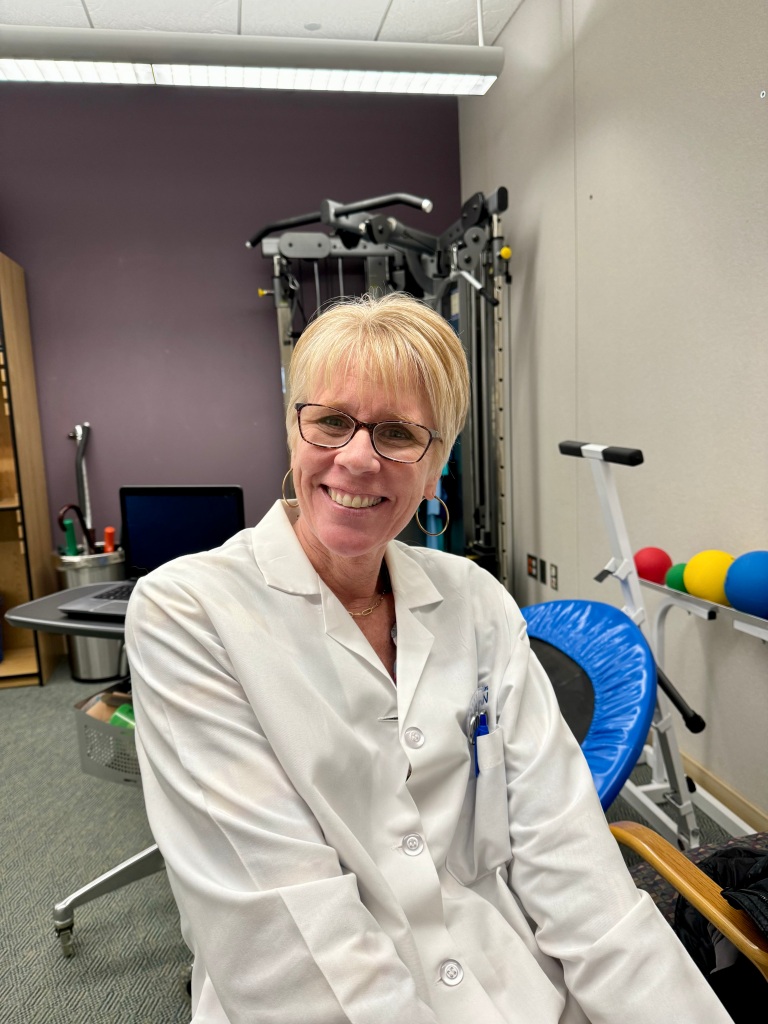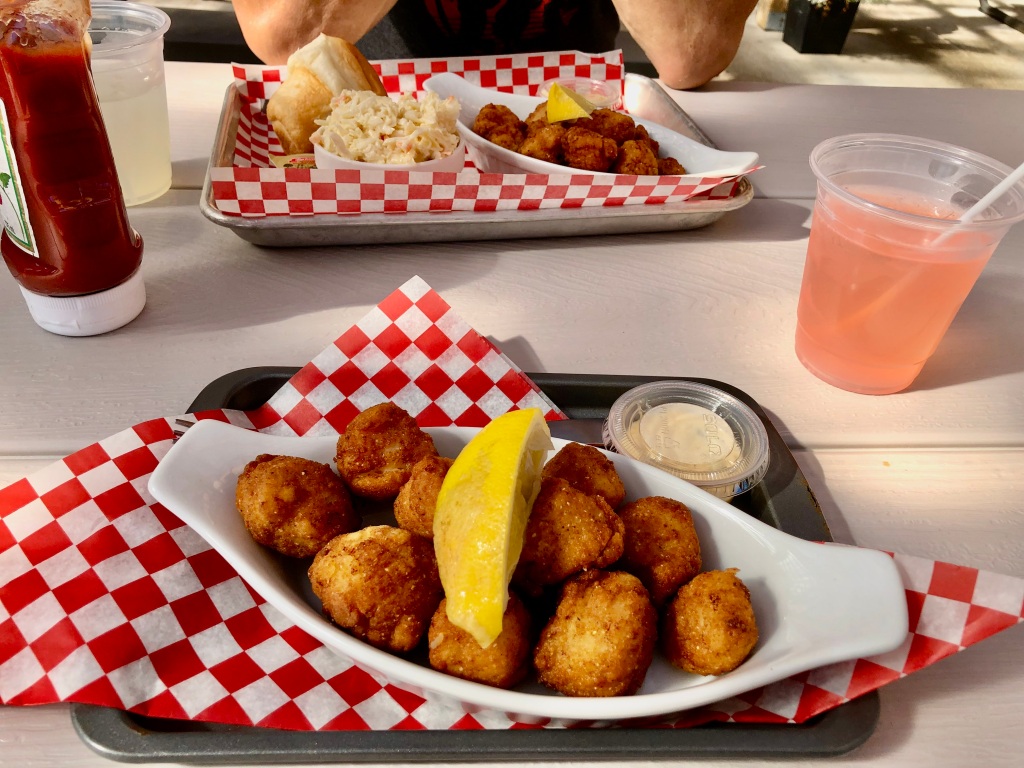
Here is a story of hope and joy in the aftermath of deep sorrow over the loss of a child, written by my dear friend, Susan Blount, to her newest grandchild. Motherhood (and Grandmotherhood) comes at a great cost, but it is one of the purest forms of love on earth. I pray that all of you who have had the great privilege of birthing a child into this world will have a very Happy Mother’s Day this Sunday.

January 8, 2024
Welcome to the family, Bristol Palmer Wall,
We’re so glad you are here safe and healthy. You are God’s surprise bundle of joy, but your journey to get here has kept us on our knees. Your mom had years of combating Lyme disease and Intrahepatic Cholestasis of Pregnancy that gave everyone concern. Many decisions had to be made to give you and your mom the best chances of a healthy delivery, as cholestasis can raise the chances of a stillbirth. God was near, as He always is. I can’t wait for you to get to know Him.
God chose this day, and no other, for you to be born. He knew this before the world began. Imagine that! As the day grew closer I found myself feeling more anxious. This song from my childhood kept singing in my head: I will trust when I cannot see – when I’m faced with adversity – and believe Your will is always best for me – I will trust when I cannot see.
Your sisters, Hope and Alana, got a stomach bug just a couple of days before this. Thankfully, your mom didn’t get it! God was merciful.
Only God knew what the future held for you and the family who already loved you. We all knew what we wanted, but I knew what God had seen us through in the past.
It seems that Mom’s Lyme disease has been partly responsible for some of her pregnancy struggles. Then, thirteen years ago, your older sister, Ivana, died just prior to her due date. We have never experienced a still born baby in our family and the shock was almost more than we could bear. God was near, then, too, as He always is. He saw us through, though the memory is still very raw.
I thought of Ivana often during your delivery today. She never got to meet us, but it’s a comfort to know that she knew the love of your mother, and the sounds of her family before she left for the perfections of heaven – safe in the arms of Jesus.
In October of last year, Aunt Crysten and I were rejoicing with our friend Kelly who was expecting her second baby, a boy who would be named Noah. Like your mom, there were some concerns for the safety of Kelly and Noah so they planned to have her induced. Sadly, things didn’t go well for them.
These were the stories that played like a background noise in the days leading up to your birth. God was using them to stretch my faith – to trust in Him for the things I could not see or understand. Our God is great, you’ll see.
My prayer that morning wanted to beg God to make everything perfect, but I knew He already had a plan and I needed to be willing to accept whatever it was. I knew it would be for our good no matter what happened. So, I prayed that we would know peace and that the caregivers would have wisdom.
God’s continual presence is real, but I wanted it to be more than good theology… I wanted it to be tangible… and He did not disappoint.
Before leaving for the hospital your Great Aunt Judy sent me this: “In my quiet time this morning Psalms 145:18 “The LORD is near to all who call upon Him, all who call upon Him in truth… He fulfills the desires of those who fear Him: He hears their cry and answers them.” It was God’s way of reminding me, “Fear not, I am here.”
When Mom checked in to her room, they discovered right away that she was already 3 cm dilated at 36 weeks. This was the second confirmation that God was in this and moving us toward the outcome we desired.
He prepared a nurse, named Kassey, who was the perfect fit for Mom and our family. She was homeschooled, homeschools her children, had a home birth and seemed like someone we had always known. A woman who understood where we came from and embraced some of our favorite things in life.
Homebirth midwives have such a different philosophy than medical doctors, so it was comforting to have a nurse who would know the difference and help your mom to move things along in a non-intrusive way, as much as possible. She was patient and calm. Just what was needed. God was near.
She introduced us to a technique I had never heard of called Spinning. Spinning Babies® has become a new view on childbirth created by midwife, Gail Tully. The technique helps create room in the lower uterus so you could rotate into a more ideal position for birth. You seemed to like it and it may explain why you shot out of there in only 40 minutes. 😊
We certainly didn’t want a C-section because the recovery for your mom is so much harder and longer. But, if you had shown any signs of distress, they were ready to do that to save your life. Your mom wore a heart monitor the entire time and your heart rate never dropped or gave us any concern. God was near. Even in low risk births, the heart rate can drop some as the head gets lower in the birth canal. Your heart rate was an encouraging sign that the C section would not be needed.
The first procedure used to get things started was to strip your mom’s membranes. She did feel some contractions during the morning, but they were weak and not very often.
“What can we try next?” she asked Nurse Kassey. She suggested pumping some milk. She quickly went to get a breast pump and got your mom started. “I’ll be back in 15 minutes,” she said.
It didn’t take long before your mom filled two bottles with colostrum and experienced some good strong contractions – the kind she couldn’t talk through. It was more encouragement that this delivery would happen without surgery.
Nurse Kassey answered Mom’s call button and couldn’t believe how fast she filled those bottles. “I’ll put them in the fridge for later.” And it was a good thing she did.
I wondered two things: 1. Has your mom used up the essential colostrum that would be needed in a few hours? And 2. If needed, how would they get the save colostrum into a breastfed baby? God was near and He had an answer for both of my questions.
(When babies are born early, their blood sugars are often unstable. Nurses keep checking for about 24 hours and yours were dropping. You wouldn’t wake up to eat and the saved colostrum helped elevate your blood sugars. They used a dropper to get it into your mouth. God was near… as He always is.)
Once Mom stopped pumping her milk, the contractions continued but not at the same pace. Your doctor came in to discuss the next step – an infusion of Pitocin, a synthetic version of oxytocin, the naturally occurring hormone that the body produces to signal the uterus to birth its contents. We hesitated to go that route because we would be asking Mom’s body to do something it might not be ready for, and the contractions are much more intense.
Dr. Abbey said she would just do “a squirt” every half hour and would stop whenever your mom said to.
With the contractions getting stronger, I suggested your mom might want to get in the tub and she agreed. Warm water was drawn and she slipped into it, groaning with contractions. Your dad hovered over her in case he was needed. You were tolerating everything well. The Pitocin seemed to be working.
The time was 6:50 PM. Before long, Mom yelled that she thought you were coming. Dr. Abbey rushed in and said, “Melissa, you have to get out of the tub. We’re not allowed to deliver in the tub.”
Mom couldn’t move. “I have to push!” “Don’t push yet,” Dr. Abbey said. But you can’t stop a fast moving “train” and as the water was draining out of the hard porcelain tub, out you came! It was only 7:28 PM!
You came with an attitude and that was very comforting because preemies often have weak lungs and your cries confirmed yours were strong and getting stronger with every crying breath. God was near . . . as He always is.
You were a short 18.5 inches long and a round 6 lbs. 5 oz. Very good size for a “preemie”, born at 36 weeks. There were no extraordinary measures needed (no NICU) to secure your health. Sing Hallelujah! All is well. We see God’s plan now, and in all circumstances, He is worthy of our praise.
I can’t wait to do more life with you, Bristol. You’re one of a kind and perfect, a thumb sucker (like me when I was little), and your snuggle is real. All is well, lift up your voice and sing Hallelujah, all is well. Thank you, Jesus.

Welcome to the family. We’re so glad you’ve come.
With hugs from a very grateful Nana who loves you a bunch.
“ . . . and give to my children a perfect heart to keep Your commandments, Your testimonies and Your statutes, and to do them all . . . know the God of your father, and serve Him with a loyal heart and with a willing mind; for the LORD searches all hearts and understands all the intent of the thoughts. If you seek Him, He will be found by you; but if you forsake Him, He will cast you off forever. If your heart is blameless you will not be ashamed.” (1 Chronicles 29:19; 28:9-10; Psalm 119:80)





















































